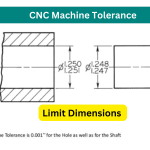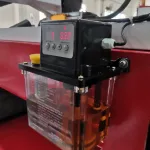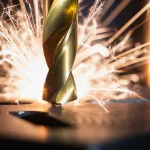What is Friction Drilling?
Friction drilling, also known as thermal drilling, is a relatively new technique that is gaining popularity in the heating and ventilation industry. This process involves using heat and pressure to create holes in metal, rather than traditional drilling methods. In this article, we’ll explore the benefits of friction drilling and compare it to traditional drilling methods to help you make an informed decision for your HVAC system.
Table of Contents
Friction drilling and traditional drilling methods both have their advantages and disadvantages when it comes to HVAC systems. Conventional drilling methods are reliable and have been used for many years, but they can be time-consuming and require a lot of equipment. On the other hand, friction drilling is faster and requires less equipment, but it can be more expensive upfront. Ultimately, the decision between friction drilling and traditional drilling methods will depend on your specific needs and budget.
Friction Drilling Takes Hold in HVAC Applications
Friction drilling, also known as thermal drilling or flow drill screwing, is a metal fastening technique gaining popularity for joining sheet metal components in heating, ventilation, and air conditioning (HVAC) assemblies.
Friction drilling eliminates the need for pre-drilled holes and creates strong joints without deforming or tearing thin sheet metals. The friction drilling process uses a hardened steel drill bit rotated at high speeds to plow through sheet metal and create a hole. The heat and pressure fuse the metal into a metallic collar around the hole, which grips onto screws or bolts for a durable threaded joint. The collared hole effectively becomes its durable threaded insert in the sheet metal. Benefits for HVAC
Manufacturing Friction drilling has several advantages for HVAC products and equipment:
Fast and automated
Strong and secure
Thin sheet metal compatible
Friction drilling works well with the thin aluminum, galvanized steel, and stainless steel sheet metals commonly used in HVAC units and air ducts. It does not cause tearing or deformation around the hole that can occur with pre-drilling
No pre-drilling required
The friction drilling process eliminates the need for pre-drilling holes in the sheet metal. It reduces production time, cost, and equipment needs. It also makes automated assembly more straightforward.
Environmentally friendly
Friction drilling is an immaculate process that produces no cutting chips, swarf, or loose debris. Making it ideal for medical and food equipment where contamination must be avoided. The smooth hole edge is also less likely to collect dirt or grime over time.
Applications in HVAC Products
Air grills and vents
Friction drilling is commonly used to join aluminum air grills, vents, and louvers. It quickly secures the thin sheet metals without distortion.
Ducting
Blower and fan housings
Here are two case studies
Case Study 1
Case Study 2
Medical Ventilation Equipment Ventilators and other medical respiratory equipment must be constructed from stainless steel and aluminum to high-cleanliness standards. Friction drilling is ideally suited for these applications as it produces no loose debris or contaminants. Fast automated drilling helps minimize production time. The solid yet low-profile joint connections it creates meet high-performance requirements. Medical equipment manufacturers are increasingly turning to friction drilling.
Friction drilling has emerged as an essential manufacturing technique for sheet metal fabrication in the HVAC industry. Its unique benefits—speed, strength, automation, and thin sheet metal compatibility—address many of the priorities HVAC producers face in achieving high-quality, standardized products at a low cost.
While pre-drilling and welding still have their place for heavier-duty or custom HVAC assemblies, friction drilling makes the mass production of components like air vents, ducting, blowers, and medical ventilators faster and more affordable. Given its significant advantages for automated high-volume manufacturing, friction drilling will likely continue growing as the preferred joining method for many types of HVAC sheet metal applications in the coming years.
Overall, friction drilling delivers the productivity and efficiency gains that drive progress in HVAC technology and manufacturing. By facilitating faster, more standardized equipment production, friction drilling helps raise quality standards, lower costs, and improve the accessibility of essential climate control products on which society depends. Through simple innovations at the most foundational levels, friction drilling enhances how we heat, cool, and ventilate the built environment.


